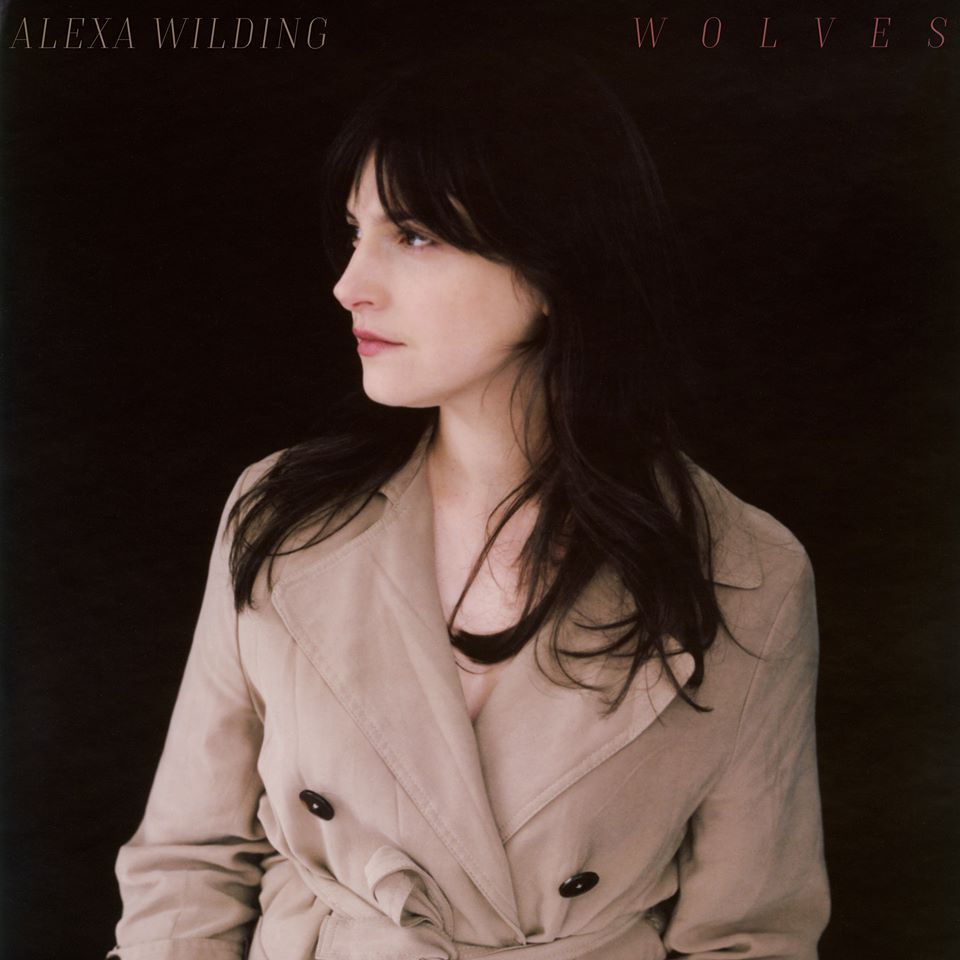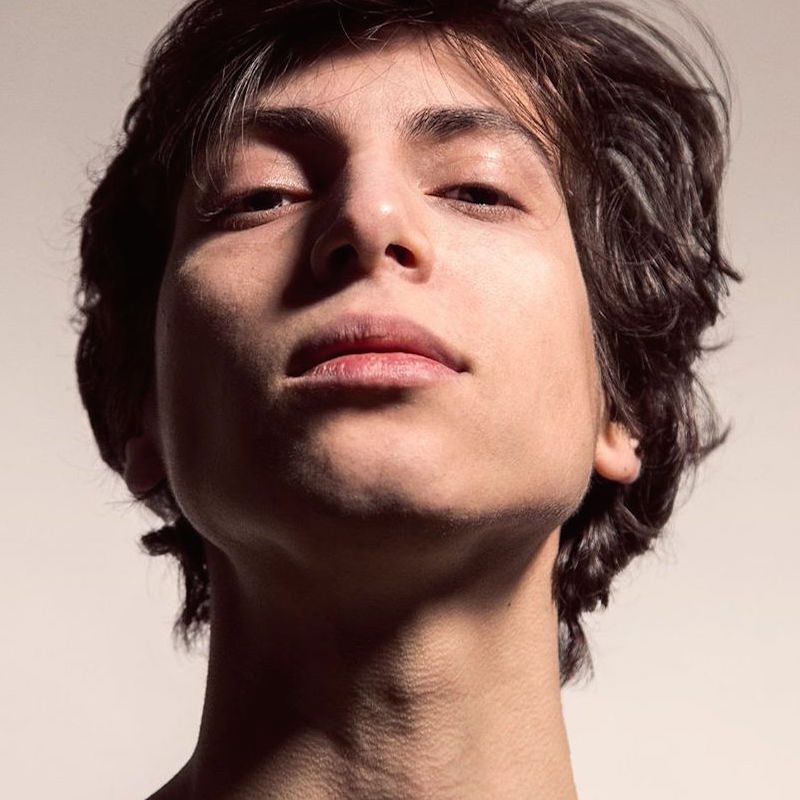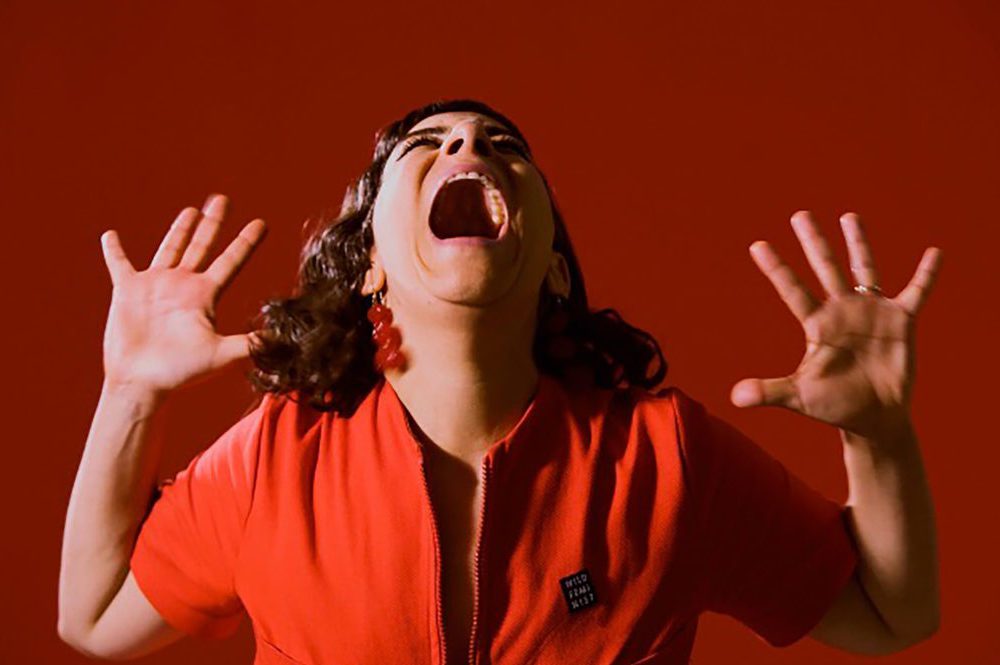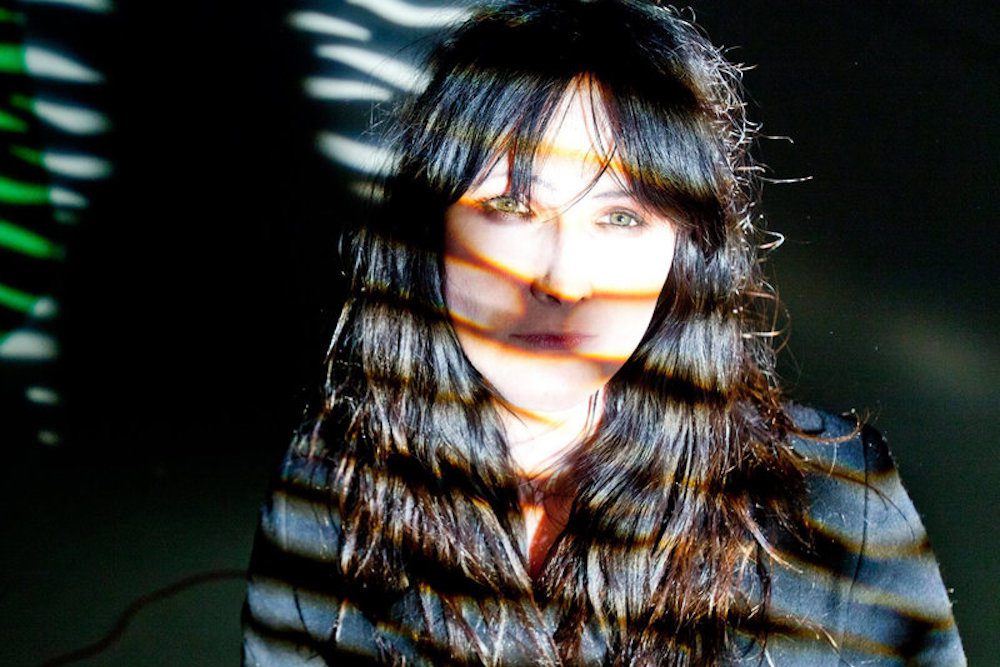ARTIST INTERVIEW: Alexa Wilding
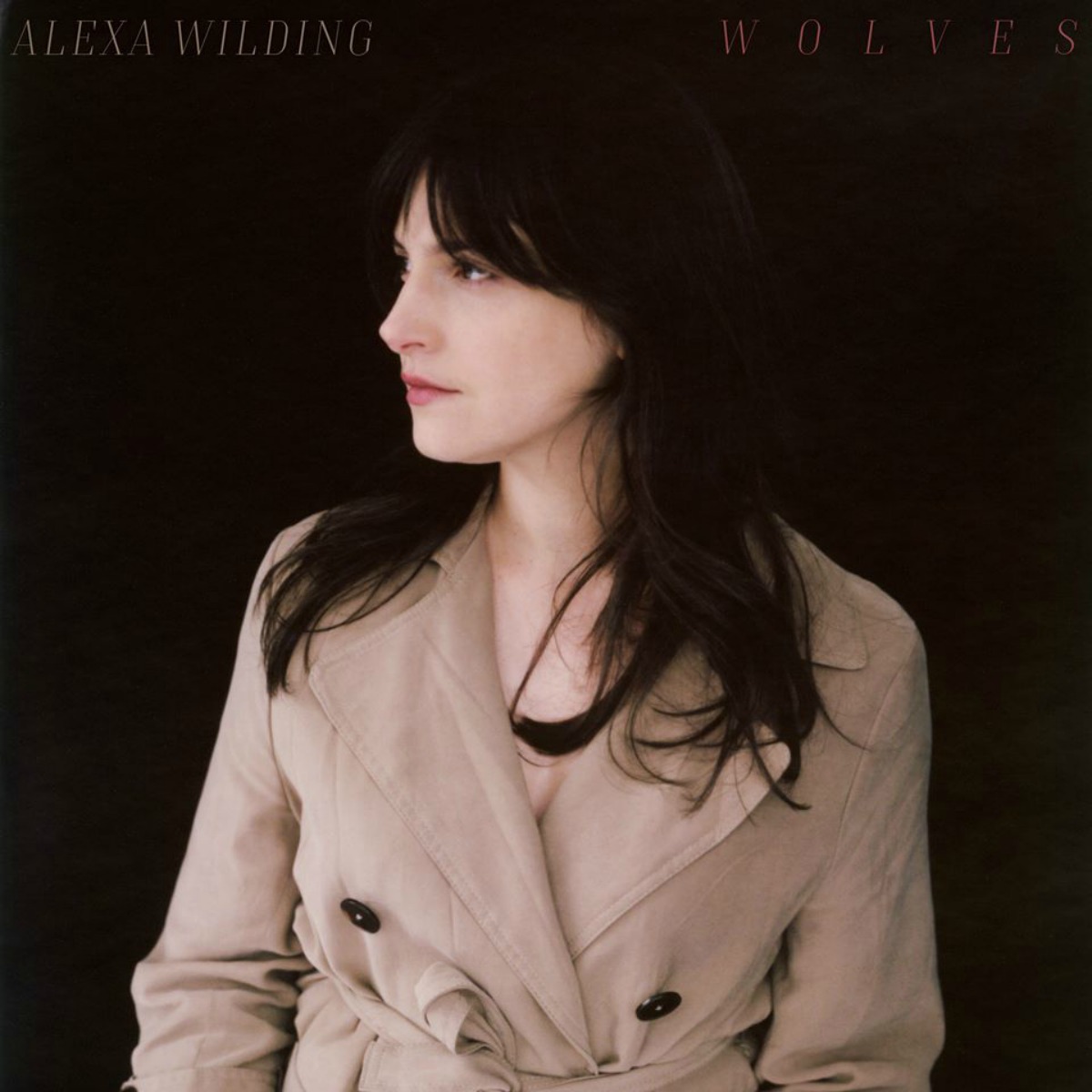
New York songstress Alexa Wilding has an upcoming EP Wolves, which sees a transition from her previously more airy folk music. We sat down and talked about where her inspiration came from for the piece, as well as what sort of transition we can expect from her past work. After taking a few years off from music, Alexa realized the pull toward this art form was stronger than she had previously acknowledged, and she found herself creating music when she needed an outlet. It also provided her with a chance to really focus on herself. This is an EP that saw her through a difficult time in her life—when one of her children was diagnosed with cancer—and both its name and content reflect the changes Alexa underwent.
Read on below for an interview with her, and keep an eye out for Wolves, which is due to release on July 8.
AudioFemme: Tell me about your musical history, are any of your family members involved in music?
Alexa Wilding: Yeah, I come from a pretty ridiculously arty family. My dad’s parents were well known opera singers. My mom’s an actress, my dad still is a filmmaker, my grandmother was a painter, so needless to say—and my aunt was a ballet dancer—we’re sort of an arty bunch. And music played a pretty big role in my childhood and in my family’s culture really.
What inspired you to create your new EP Wolves?
Sort of circumstances I never ever thought I’d be writing a record in. I had twins in 2013. They’re going to be three next month. And unfortunately—well, things are fine now, but my son Lou went through cancer treatment. So the record was written in the most unlikely of places. He’s fine, which is really good for him.
That’s such a relief.
Yeah, it was crazy. It was really crazy. But you know, becoming a new mother, I wasn’t really sure, like am I going to keep doing music? It’s all I’ve ever done, but I was just so sapped creatively from the wild psychedelia of being a new mother and then we were thrown into this crisis. And basically what it meant was weeks on end for six months, we basically lived in the hospital. We switched off nights, my husband and I, so my son at home always had a parent.
But for the first round, I was in such a state of shock that I wouldn’t be able to sleep. I would just stare out the window at the East River and be like, “Where am I? How did this happen?” I was so terrified. Then by the second round, I don’t know what happened, but I said, “Okay, that’s it, Alexa. You need to carve some space for yourself.” So I turned to what I always turned to, which is music. I wrote the songs on Wolves on a toy piano borrowed from the hospital playroom.
It was wild. And while my son slept and healed, the songs just came. And mostly it was an escape for me. Like when I tell people that I wrote the songs in these unusual circumstances, they’re like, “Oh my God, this must be a really depressing cancer record.” And I’m like, “Actually there isn’t even a mention of what was going on.”
I so needed an escape, and what I did was I really focused on a time in my life right before I became a mother. That year I was touring nonstop and different relationships were kind of coming in and out of my life, so the record was sort of making peace with some of those loose ends, things that were put on hold to become a mother. And by doing that, I was able to become present.
Pediatricians always joke when you become a parent, and they’re like, “You know, you’re a parent, you need to put the oxygen mask on you first and then your kid.” And I was always like, “What the hell does that mean?” But that’s kind of what I did. So it was very surreal to leave this six-month experience with a cancer-free child, which is obviously the most important thing, but also as an artist, to have these songs that were ready to go. And it was very reaffirming after taking a few years off to be like I don’t really have a choice. I guess making albums is just what I do.
That’s awesome. I’m so glad he’s okay.
Thank you! Me too, me too.
So what does your ideal audience to this EP look like?
That’s a good question. People have joked about me that my following are a small but dedicated circle of very well-dressed people. I was like, okay, yeah, I like that. I feel like this record in particular is my most accessible one to date. But, that said, it’s the one I find most interesting. So I hope I haven’t sacrificed any of the oddness by having my first full-band record. I think that women in particular, hopefully, will relate to it. I am definitely a 90s kid, so I came of age with Lilith Fair. Kim Deal was like my hero, and Tori Amos and Sarah McLachlan. Ya know, we all laugh because Sarah McLachlan is so dorky now, but I was listening to her recently when I was on a job, and I was like, “This is good stuff. Everyone’s got to chill out about this. She changed history.”
Yeah, I agree. There’s something about it where you’re like, this isn’t really a guilty pleasure because I’m not guilty about this.
Yeah, that makes sense! Totally. I loved all that stuff. So I am unabashedly saying and hoping to carry on that tradition of women who, ya know, wrote good songs and knew how to play their instruments and told stories that were very personal to the female experience. And that said, you know, I think more men are actually hopefully going to like the record, too, because it has a masculine side to it as well. It’s really—and this is really stereotypical—but it’s really trying to move. Which I wanted, because the whole idea with Wolves was be like, here are these feminine stories that I was trying to summon up in myself, like the wolf, to have the strength to handle my experience. With most of the record, there’s a softness to it, but to be totally blunt, the joke we made in the studio was always, “Boobs and balls, boobs and balls: They have to be in direct proportion, in an even balance.”
So I feel like it’s my toughest record, in a weird way. And I’m really proud of that because I was getting really sick of, ya know, before and people saying, “Oh, it’s just a girl picking her guitar. La-di-da.”
Right, yeah, that’s kind of insulting.
Or you get up to play a show and people would immediately look at you and before you started and be like, “I know what I’m in for.” And that used to make me crazy. I’m hoping it’ll reach a wider audience, and it’s not just the freaky folk thing anymore. When I wrote it, I was listening to a lot of radio and having fun playing with melodies for the first time in a way that I was like, “I want everyone to like this song!” Even the person who’s just tapping their foot, they’ll get that out of it.
Is there anything you’re hoping that your fans will take away from this piece?
Yeah, I mean obviously I can’t divorce the story of the circumstances in which it was written from the music. And my fans were so supportive during our crisis. Ben Lee, who’s a friend, did fundraising for us. So many of my friends used their celebrity to sort of help us. And the story, despite myself, got a lot of attention. And I was really happy to share our story with different media outlets. Because, as Ben said when he started—he did a Plumfund—because something people don’t realize is that I was like, “I’m not fundraising. What will people think? We have insurance! Blah blah blah.” But a medical crisis like that really wreaks havoc. Things you don’t even think about, like going to take cabs to and from the hospital every day. So that was really a lifesaver. But what he said was, “They are us. This could happen to any of us.” And what I’m hoping people get from it is the importance of holding onto yourself during a crisis, whether or not you are a parent. I don’t want to isolate or alienate fans who are not parents, but at the same time I’m pretty sure the record will hold a special place. It really has touched a lot of mothers, at least in New York City a lot of mothers have started following me during this crisis.
But what I hope fans take away from it is the idea that we can make friends with parts of ourselves that we used to be. I think that’s a lot of what the record is about. I talk a lot about different relationships. There’s one song, “Road Song,” in which it’s kind of a cinematic song. I mean, it’s basically a woman saying that she wants to be with somebody who’s with somebody. And that was a really scary song for me to write. I had to sort of make peace with that part of myself. We all have that.
I know I’m talking to a female music blog right now so I can say this, but I think it’s very hard for women to talk about their desire. Men are allowed to say, “I want that!” Or, “I want her!” Or, “I want to go on the road with my rock and roll band.” And nobody really thinks twice about it. And when it comes to women, we have a harder time talking about that. So for me, this record dealt with a lot of love as issues. Like with wolves. Like why can’t that person step up and do what the wolves do and be my partner? Why can’t I step up? In “Road Song,” it’s like I want that—I want what he has. And “Durga,” the last song, the lover is disappointed in the fact that her partner is not leaving his easel to tend to her needs. So like, all these little stories, these little snippets. Also, there’s this song called “Black” that’s a really small song where I just talk about going to a dark place. As women, especially as mothers, we’re not allowed to talk about wanting to go to a dark place. We’re supposed to just keep it together and lay low, so I think I was dealing with a lot of those questions on the record.
That makes a lot of sense. There is that weird expectation, especially with a mother, if you say anything is wrong, people are like, “She can’t handle motherhood.”
Exactly! I was even worried, like what are people going to think? She wrote this record about her son? It’s like what I was dealing with, and people were doubting me. It’s because I wrote a record that I was able to mother him. We’re so judgmental. And women are the worst!
I read a quote recently, a female filmmaker had a really bad interview where she had a movie come out and the interviewer kind of bashed her, and it was a fellow female. And she wrote an open letter defending her films, and in it she said, there’s a famous quote, I forget who said it: “There’s a special place in hell for women who don’t support other women.” I love that. All about the sisterhood!
Definitely. So since you feel you’re kind of switching genres, is there any genre that you now feel like you fit into better?
I definitely was sort of occupying—I mean, I was told I was occupying more of a freak folk, folky, flower crowns thing. And I love a flower crown, but I really want to be moving more into just singer/songwriter. And someone like Natalie Merchant is incredible, as sort of the godmother of this sort of genre. People that I normally look up to in my own sort of circle. Also, Adler is incredible; I love her stuff. She’s somebody who made really spooky folk music and is now sort of standing her sound. I see this in a lot of my peers. Merchant has really taken off, which is so good for all of us, but I see it in our circle, and we are really moving away from the pigeonhole of “girl with a guitar.” And I still, I mean, it’s so cliché, but I still hear in interviews or after shows, “Oh my God, you were so incredible. I can’t believe you play your own instruments!” It’s just wild. That still exists.
You’d think we’d moved away from that already. So is there any specific song that you feel more of a connection with than the others?
My favorite song on the record—I mean, I have a couple—but there’s this song called “Stars,” it’s the fourth song, that I really love because it was just such an example of my escaping. It was a memory of being on the road, and I talked about being by the Rockies and the clear skies and the sadness I felt because I was so trapped as I was writing it. I really love that song. The line is, “Sometimes the sky throws a handful of stars in your way.” For me that sort of sums up the whole thing: that life really takes these crazy, wild turns, but you can really get through them in a magical way if you consider the circumstances with the same wonder and curiosity as you would a good situation. So I really tried to do that during my son’s crisis. And people would say during it, “How are you so together? How are you so cheerful?” And I would just wake up every day and I’d wash my face and I’d put on a nice dress and try to make everything look nice and do my best and have the same curiosity toward a bad day as you would a good day, which sounds really Pollyanna, but it really takes fucking guts. And I’m in awe of some of the people who really inspired me to summon up the wolf woman. The she-wolf.
That sounds amazing. What do you have planned for the future right now?
So we’re releasing Wolves in July, and I’m really only playing a limited amount of shows just because I’m with my kids right now and the logistics of three-year-old twins. I don’t know, I am a bit of an overachiever, but I have to sort of draw the line. I’m still going to do what I can to share the songs with the world. And I’m actually beginning the next record, which will be a full-length record. I’m really excited about that. And also, I’m writing a book, basically about the whole experience.
If you could perform at one venue, existent or nonexistent, which one would you choose?
Oh my gosh. One venue. As a New Yorker, I would kill to perform at the Beacon. That’s a real dream of mine. Or Carnegie Hall. I saw Suzanne Vega do something there a few years ago, and she couldn’t help herself and said, “How do you get to Carnegie Hall? Practice, practice, practice!”
But my one regret is that, before becoming a mother, I didn’t tour in Europe. And I really look forward to doing that in the future. In particular, I just want to play in Paris. That would be a really happy, happy night.
What besides creating music do you do as a hobby? Do you have anything that kind of forms your identity?
Yes, so mother/musician/writer. I’m quiet about my writing, just because music is so in your face. But I write and read constantly. I’m a real bookworm.
Do you have any musical milestones that you’re working toward adamantly?
For me, the biggest milestone is that I’d really love to have a label or a team behind me. I’ve been doing this by myself for so long, and I’ve never really found the right fit or didn’t ask for what I wanted or didn’t have that sort of fateful connection happen yet. And while I know those relationships can be very fraught, whether it’s label or manager, I’m really ready to put the proper team behind what I’m doing simply so we can reach more people with the music. I want it to happen in a natural way, but I’m just hoping I can continue to. And I’m sort of coming back after a long time. And it’s might be a bit of a slow ride, but I’m realizing that my ambition is much greater than I ever thought it was. Again, another thing as a woman is that we’re not really supposed to be like, “I want to take over the world!” But I really want my music to reach everyone.

